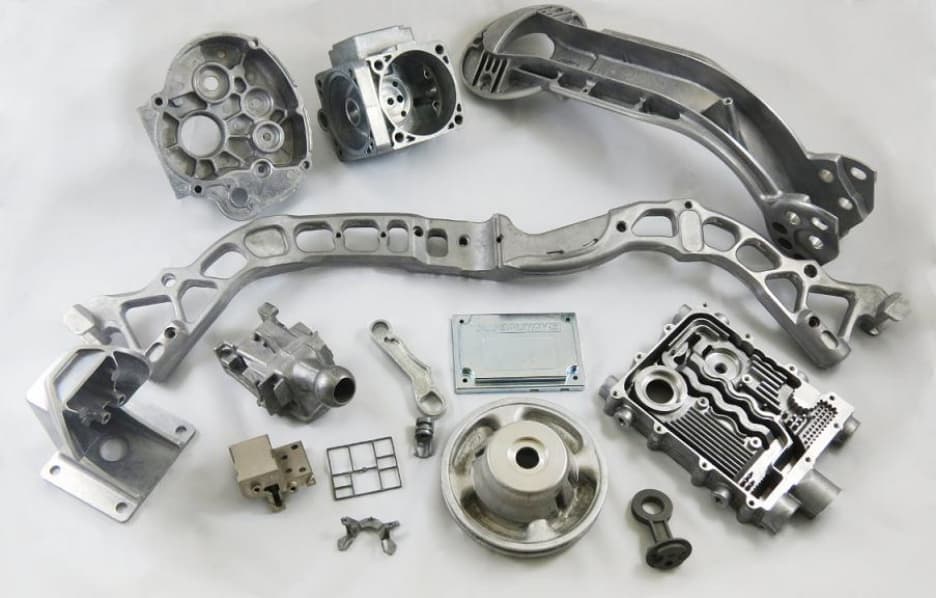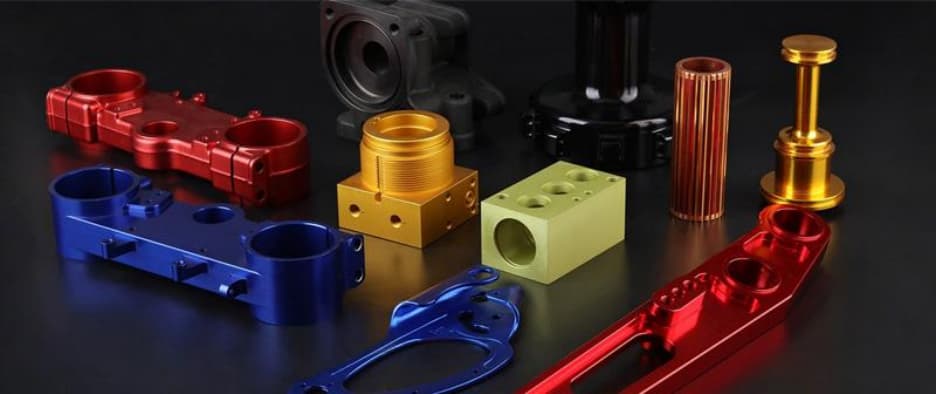Die Cast Metal Kits: A Comprehensive Guide to Precision and Versatility
Related Articles: Die Cast Metal Kits: A Comprehensive Guide to Precision and Versatility
Introduction
With great pleasure, we will explore the intriguing topic related to Die Cast Metal Kits: A Comprehensive Guide to Precision and Versatility. Let’s weave interesting information and offer fresh perspectives to the readers.
Table of Content
Die Cast Metal Kits: A Comprehensive Guide to Precision and Versatility

Die cast metal kits are pre-engineered assemblies comprising metal parts produced through the die casting process. This process involves injecting molten metal into a precisely crafted mold, known as a die, to create intricate and durable components. The resulting parts, often referred to as die castings, are characterized by their high dimensional accuracy, intricate detail, and ability to withstand significant stress.
The Die Casting Process: From Molten Metal to Precision Parts
The die casting process begins with the creation of a die, a hardened steel mold with intricate cavities corresponding to the desired shape of the final part. This die, often crafted using computer-aided design (CAD) and computer-aided manufacturing (CAM) technology, ensures consistent and precise production of components.
Molten metal, typically aluminum, zinc, magnesium, or copper alloys, is then injected into the die under high pressure. This process, known as die casting, forces the molten metal to fill the die cavities, replicating the intricate design.
Once the metal solidifies, the die is opened, and the finished die casting is ejected. This process can be repeated rapidly, allowing for high-volume production of identical parts.
Benefits of Die Cast Metal Kits: A Powerful Tool for Engineers and Manufacturers
Die cast metal kits offer numerous advantages that make them a preferred choice for a wide range of applications.
-
Precision and Accuracy: Die casting produces parts with exceptional dimensional accuracy and surface finish. The use of precise dies ensures consistent component geometry, critical for achieving tight tolerances and seamless assembly.
-
Intricate Detailing: The die casting process allows for the creation of intricate designs and complex shapes, including undercuts and fine details that would be difficult or impossible to achieve with other manufacturing methods. This capability opens doors to innovative product designs with improved functionality and aesthetics.
-
High Strength and Durability: Die cast metal parts are known for their high strength-to-weight ratio and exceptional durability. The casting process creates a dense, homogenous structure, capable of withstanding significant stress and impact, making them ideal for demanding applications.
-
Cost-Effective Production: Die casting is a highly efficient production method, allowing for high-volume production of identical parts at a relatively low cost per unit. This efficiency is particularly beneficial for large-scale manufacturing projects where consistent quality and affordability are paramount.
-
Versatility in Material Selection: The die casting process can be employed with a wide range of metal alloys, each offering unique properties. This versatility allows for the selection of materials that best suit the specific application’s requirements, be it high strength, corrosion resistance, or specific electrical conductivity.
-
Rapid Prototyping: Die casting enables rapid prototyping, allowing for the quick creation of functional prototypes for testing and refinement. This accelerates the product development cycle, leading to faster time-to-market.
-
Environmentally Friendly: Die casting processes can be designed to minimize waste and maximize material utilization. This eco-conscious approach reduces the environmental impact of production, contributing to sustainable manufacturing practices.
Applications of Die Cast Metal Kits: From Automotive to Aerospace
Die cast metal kits find wide application in various industries, including:
-
Automotive: Die casting plays a crucial role in automotive manufacturing, producing components like engine blocks, transmission housings, suspension parts, and door handles. The durability and precision of die cast parts ensure the reliability and longevity of vehicles.
-
Electronics: Die casting is essential for producing intricate housings for electronic devices, including smartphones, laptops, and consumer electronics. The ability to create complex shapes and integrate features like buttons and connectors makes die casting a preferred choice for these applications.
-
Aerospace: Die cast metal kits are used in aerospace applications where lightweight, high-strength components are required. Examples include aircraft engine parts, landing gear components, and structural elements.
-
Medical Devices: Die casting is employed in the production of medical devices, including surgical instruments, implants, and medical equipment housings. The precision and biocompatibility of die cast components ensure the safety and efficacy of these devices.
-
Consumer Goods: Die cast metal kits are widely used in the production of consumer goods, such as tools, appliances, toys, and sporting equipment. The durability and aesthetic appeal of die cast parts make them ideal for these applications.
FAQs About Die Cast Metal Kits
1. What are the advantages of using die cast metal kits compared to other manufacturing methods?
Die cast metal kits offer several advantages over other manufacturing methods, including:
- Higher precision and dimensional accuracy: Die casting produces parts with tight tolerances, crucial for assemblies requiring precise fit and function.
- Intricate detailing: Die casting allows for the creation of complex shapes and undercuts, enhancing product design and functionality.
- High strength and durability: Die cast parts are robust and resistant to wear and tear, suitable for demanding applications.
- Cost-effectiveness: High-volume production with consistent quality makes die casting a cost-efficient manufacturing method.
2. What are the limitations of die cast metal kits?
While die cast metal kits offer numerous benefits, they also have some limitations:
- Limited design complexity: While intricate, the design of die cast parts can be limited by the mold’s geometry and the casting process.
- Higher upfront cost: The initial investment in die creation can be significant, making it less suitable for low-volume production runs.
- Potential for porosity: Die cast parts can sometimes exhibit porosity, which may affect their strength and performance.
3. How do I choose the right die cast metal kit for my project?
Selecting the appropriate die cast metal kit depends on your project’s specific requirements:
- Application: Consider the intended use of the final product and the environmental conditions it will encounter.
- Material properties: Choose a metal alloy that meets the required strength, corrosion resistance, and other properties.
- Production volume: Determine the expected production quantity to evaluate the cost-effectiveness of die casting.
- Design complexity: Assess the intricacy of the design and its feasibility within the limitations of die casting.
4. What are the key factors to consider when designing for die casting?
Designing for die casting requires careful consideration of:
- Draft angles: Ensure sufficient draft angles on all surfaces to facilitate easy ejection from the mold.
- Wall thickness: Maintain consistent wall thickness to ensure uniform cooling and prevent defects.
- Ribs and bosses: Incorporate ribs and bosses for structural reinforcement and to facilitate assembly.
- Undercuts: Avoid undercuts or design them with appropriate features for mold release.
5. What are the quality control measures involved in die cast metal kit production?
Quality control in die casting involves:
- Die inspection: Regular inspection of the die to ensure its integrity and accuracy.
- Metal analysis: Testing the molten metal to ensure it meets the required chemical composition.
- Dimensional inspection: Measuring the die cast parts to verify their conformity to specifications.
- Visual inspection: Examining the parts for any surface defects or imperfections.
Tips for Effective Use of Die Cast Metal Kits
- Collaborate with experienced die casting manufacturers: Seek expert advice on design optimization, material selection, and production processes.
- Provide clear and detailed specifications: Ensure accurate drawings and technical specifications for the die cast parts.
- Consider prototyping: Create prototypes to test the design and functionality before committing to large-scale production.
- Implement proper quality control measures: Establish rigorous inspection procedures throughout the production process.
Conclusion: Die Cast Metal Kits – A Foundation for Precision and Efficiency
Die cast metal kits provide a powerful solution for manufacturers and engineers seeking precision, durability, and cost-effective production. The process combines intricate design capabilities with high-volume production efficiency, making it suitable for a wide range of applications across various industries. By understanding the advantages, limitations, and best practices associated with die cast metal kits, manufacturers can leverage this technology to create innovative products with enhanced functionality and performance.







Closure
Thus, we hope this article has provided valuable insights into Die Cast Metal Kits: A Comprehensive Guide to Precision and Versatility. We thank you for taking the time to read this article. See you in our next article!